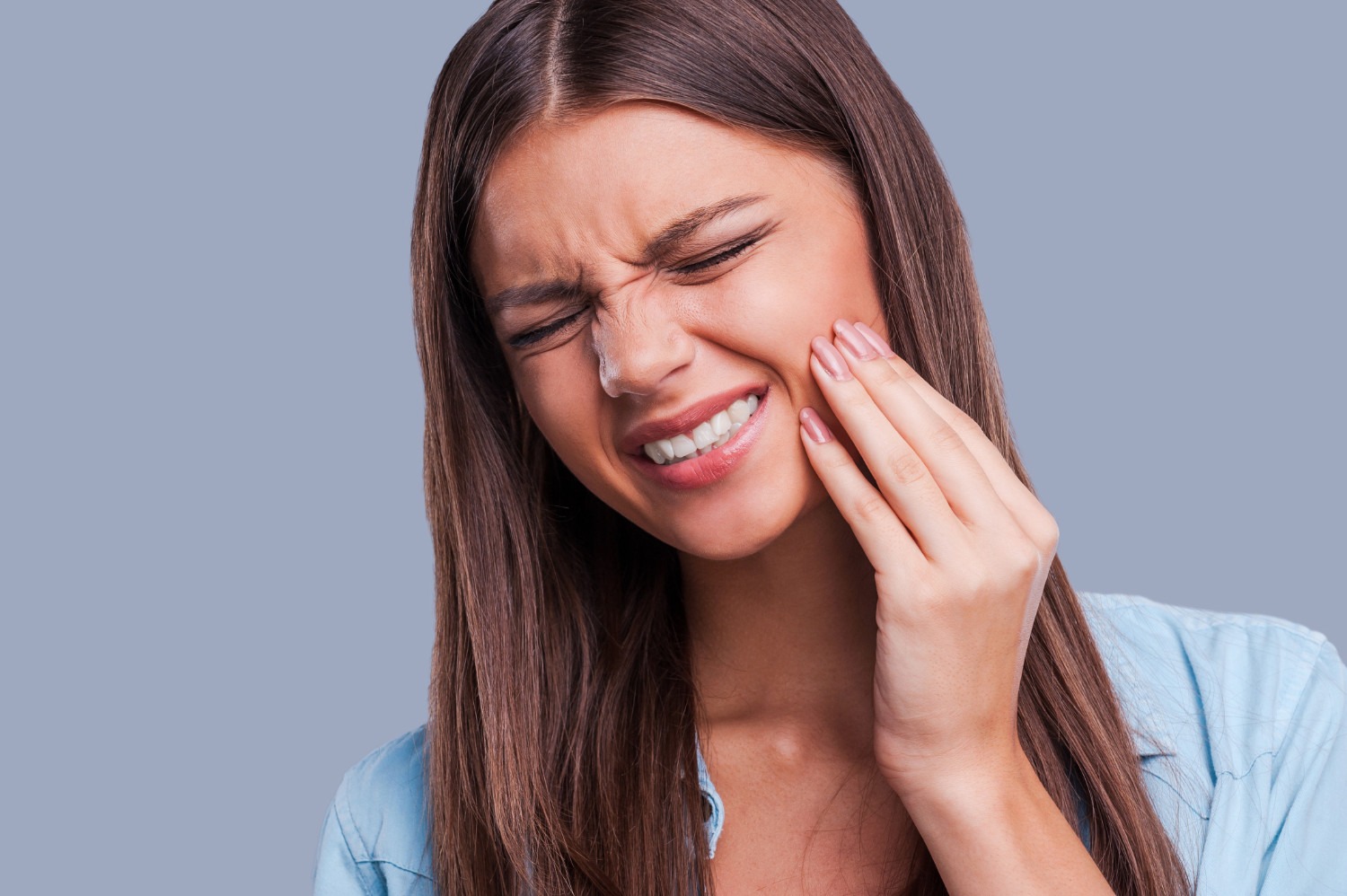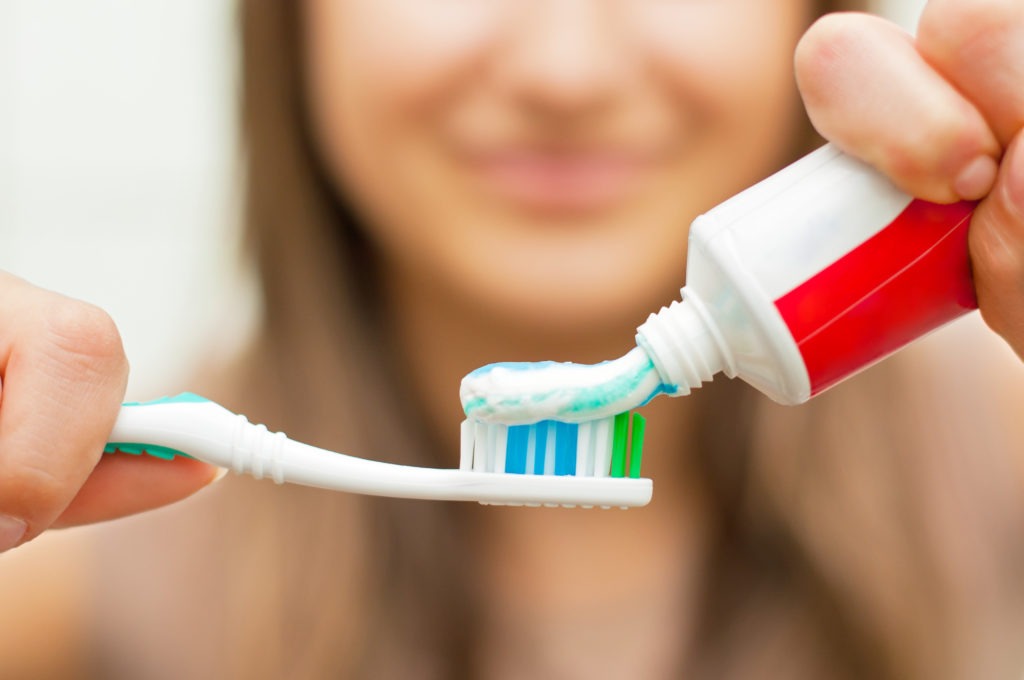Ouch! You never know when that sensitive tooth is going to act up. Before we offer any suggestions, it is important to know the causes. Tooth sensitivity comes from just about anywhere—sweet or sour foods, hot or cold temperatures, exposed root surfaces, and deep cavities or fillings. At Dudley Smiles Orthodontics, our focus is helping patients that experience sensitivity. Even the simple act of biting down can causes problems for some patients. What results is pain that ranges from mild to severe and at times is very sharp, almost like shooting pain directly to nerve endings. This is caused by nerve endings becoming easily exposed, which causes a lower tolerance for varying foods. So let us look at some of the causes, and then lay out the solution!
Causes of Tooth Sensitivity
If you suffer from sensitive teeth, you know how frustrating it can be to do simple tasks like brushing, eating ice cream or simply breathing in cold air. It is little wonder that you might be concerned about braces making it worse since these daily activities can cause immense discomfort for sufferers.
The body’s response to damage within the gum tissue is reflected by tooth sensitivity. The parts of your teeth that are normally covered by protective enamel become exposed when gum tissue begins to recede. This causes the nerve pain or sensitivity that sufferers complain of. There are numerous reasons as to why this actually happens in the first place. Some of the major causes include:
- Brushing teeth with too much force or with a toothbrush that is too hard that wears down your teeth’s enamel.
- Gum recession.
- Acidic beverages that erode tooth enamel like carbonated drinks, sweet drinks and fruit juices.
- Damage to the root nerve or other physical damage that exposes the gum.
Simply growing older because our tooth enamel naturally deteriorates as we age. - Tooth grinding.
Avoiding Sensitive Teeth
Over-brushing or brushing teeth immediately after eating wears down the gum line. As the gum line recedes, the porous roots of your teeth are revealed, and basically exposes a raw nerve. If your teeth have become sensitive due to over-brushing, our team at Dudley Smiles Orthodontics can educate you on how to better maintain your dental hygiene without causing damage. We can instruct you on the proper brushing technique and how to choose the right kind of toothbrush.
Brushing straight after a meal is not usually recommended, but for people with braces it is important to follow a strict brushing routine. Food gets trapped easily between your teeth and braces, and when that happens bacteria is created and results in cavities— making you much more susceptible to tooth sensitivity and pain. Dr. Dudley will show you the correct tools and method to use when brushing and caring for your braces, so we can minimise the risk of developing cavities or other irritation caused by trapped remnants of food.
Some foods are more problematic than others. It is important to avoid as best you can hard, crunchy, or sticky foods and anything with a high sugar content. These types of foods are likely to make your teeth inflamed and more susceptible to sensitivity. The use of toothpastes specifically designed to decrease nerve sensitivity, such as Sensodyne, is quite helpful.
Are Braces Going to Make My Teeth More Sensitive?
The pre-existence of tooth sensitivity can be an enormous concern for those contemplating braces. Braces put pressure on the teeth and gums in order to effectively shift the teeth and obtain a perfect smile. This may exacerbate any pain or existing sensitivity. But do not fret, this is a short lived result and occurs only as your teeth and gums begin to accommodate the adjustment process.
While it is normal for braces to cause some minor tooth sensitivity, they should not result in extreme or ongoing discomfort. If your teeth feel particularly sensitive while wearing braces, it is likely to be caused by one of the reasons outlined above.
Invisalign is a great alternative for people who suffer extreme tooth sensitivity. It is a removable system that uses a series of medical-grade plastic aligners to gradually shift the teeth over time. There is less opportunity for mouth irritation and the development of bacteria that can often occur through exposure to the metal wires, brackets and bands of traditional braces, which means Invisalign patients are able to maintain better tooth hygiene. This greatly reduces the likelihood of tooth sensitivity caused by braces.
It is possible for imperfections such as tooth overcrowding, crooked teeth or overbite to lead to tooth sensitivity. Many patients notice significant improvement over time by correcting these issues through orthodontic treatments such as traditional or Invisalign braces. One more reason why having braces works out best in the long term solution for tooth sensitivity.
Here at Dudley Smiles Orthodontics we are proud to say that having braces is no longer the hindrance on life that it once was. Modern orthodontics have led to better technology and new treatment options like Invisalign. These greatly reduce the impact braces have on lifestyle and comfort. Remember that any level of soreness or irritation you might feel while wearing braces is only a short term inconvenience. By fixing your orthodontic issues now, your teeth will become stronger, less prone to sensitivity, and give you more reason to show off your beautiful new smile. If you are in the Issaquah or Kent areas and have more questions about how Invisalign works with sensitive teeth or any of our other treatment options, stop by one of our offices or call us today so we can get started removing tooth sensitivity from your life!


